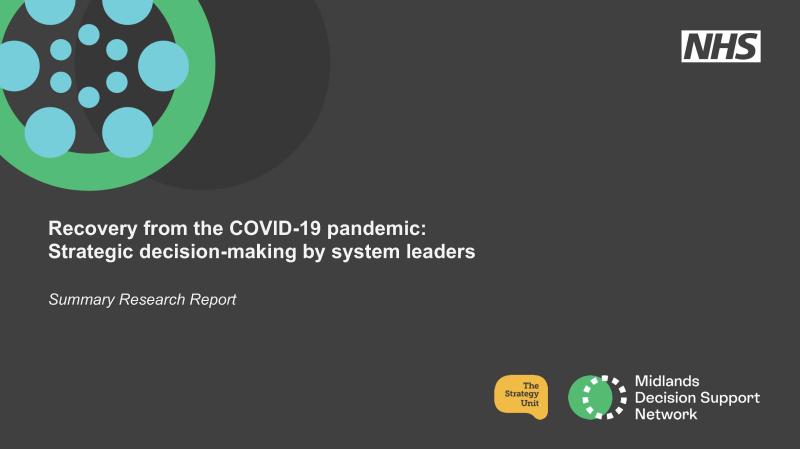This paper summarises experiences of Integrated Care System leaders in making strategic decisions to support recovery of services from the COVID-19 pandemic.
This paper is a short version of findings from a research study conducted during Q3 2021/22, drawing on interviews of eight out of the forty-two Integrated Care System (ICS) leaders in England. It summarises their experiences of strategic decision-making prior to and since the pandemic, including the process they followed and constraints they have experienced.
Key findings
- Before the pandemic, leaders reported strategic decision-making processes that were fragmented, bureaucratic and slow. They highlighted key challenges in navigating politics between organisations, limited management capacity and constraints such as lack of financial resources.
- Since the pandemic, they report more ‘collaborative’ strategic decision-making processes, with a greater alignment of priorities between organisations and more freedom to make decisions (particularly in the early pandemic). They also reported improvements in the use of evidence & data to inform decisions.
- However, there are concerns that decision quality has worsened over the pandemic period. Increased financial and workforce challenges are also greater constraints than ever, whilst a focus on recovering services may be ‘crowding out’ other important agendas such as addressing inequalities.
- Recommendations are aimed at supporting more reflective, well-structured and evidence-informed decision-making within systems – through development opportunities, changes to decision-making processes and system intelligence functions supporting decision-makers to use evidence more effectively.
CC BY-NC-ND 4.0

This work is licensed under a Creative Commons Attribution-NonCommercial-NoDerivatives 4.0 International License.
